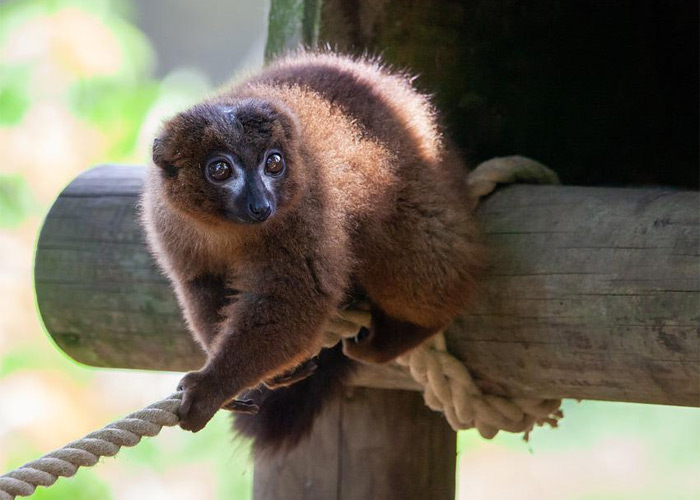(Photo above of a red-bellied lemur from Pixabay.com)
A round-up of environmental news that’s been overlooked recently.
By Colin Serjent
Rare lemurs born at Chester Zoo
The first twin red-bellied lemurs, one of the world’s rarest primates, have been born at Chester Zoo. The absolutely tiny pair, weighing just 70 grams each, were spotted by zookeepers nestled in their mother Aina’s thick fur. The red-bellied lemur is currently listed as vulnerable to extinction.
One-fifth of reptiles could become extinct
About a fifth of reptile species are threatened with extinction.
Researchers examined 10,196 species – including turtles, crocodiles and lizards – and found that 21% are critically endangered or vulnerable to extinction.
Many reptiles are being pushed to the brink by factors including deforestation for agriculture, logging and development, urban encroachment and hunting by people. Climate change and invasive species are also threats.
Smaller bees
Climate change could lead to smaller bees and fewer larger species such as bumblebees, which have lower heat tolerance, research has indicated.
Millions of hens are still trapped in cages
Millions of hens will spend their lives confined in cages despite pledges by supermarkets and restaurant chains to use “cage-free eggs”, according to analysis of industry data.
The Humane League, an animal welfare group, analysed egg industry data and public statements by the big producers. It estimated that between 4.2 million and 8.4 million hens, accounting for 10-20% of the UK total, could still be in cages after 2025.
Some producers intend to switch from cage eggs to “barn eggs”. Barn hens are able to move freely inside a shed but, unlike free range birds, cannot go outdoors. In 2021 cage eggs accounted for 40% of UK production, free range 60%, barn eggs1.8% and organic 3.7%.
Production project aims to rescue ‘dying’ Windermere
A zoologist is campaigning to stop water pollution causing what he claims is major ecological damage to a Lake District beauty spot.
Visitors have flocked to Windermere, the largest natural lake in England, since the late 19th century.
But Matt Staniek said Windermere is heading for “ecological collapse” due to phosphorous from surrounding farmland, as well as storm overflow systems and household products being pumped into the lake.
Giant tortoise Darwin dies at 105
A 105-year-old giant tortoise, which became a star attraction at Blackpool Zoo for over 50 years, has died.
The species, which originate from the Aldabra atoll in the Seychelles, have among the longest life expectancy of any animal on earth, with an average lifespan of around 125 years.
